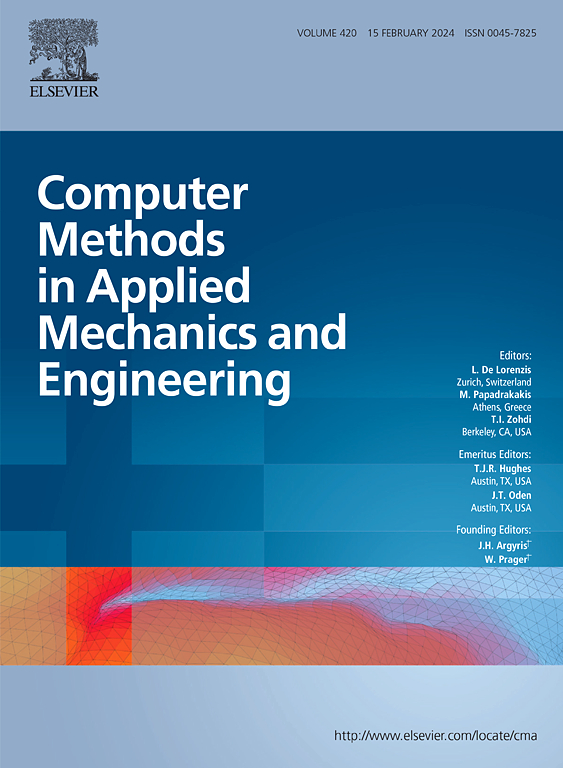Real-time inference and extrapolation with Time-Conditioned UNet: Applications in hypersonic flows, incompressible flows, and global temperature forecasting
IF 6.9
1区 工程技术
Q1 ENGINEERING, MULTIDISCIPLINARY
Computer Methods in Applied Mechanics and Engineering
Pub Date : 2025-04-15
DOI:10.1016/j.cma.2025.117982
引用次数: 0
Abstract
Neural Operators are fast and accurate surrogates for nonlinear mappings between functional spaces within training domains. Extrapolation beyond the training domain remains a grand challenge across all application areas. We present Time-Conditioned UNet (TC-UNet) as an operator learning method to solve time-dependent PDEs continuously in time without any temporal discretization, including in extrapolation scenarios. TC-UNet incorporates the temporal evolution of the PDE into its architecture by combining a parameter conditioning approach with the attention mechanism from the Transformer architecture. After training, TC-UNet makes real-time inferences on an arbitrary temporal grid. We demonstrate its extrapolation capability on a climate problem by estimating the global temperature for several years and also for inviscid hypersonic flow around a double cone. We propose different training strategies involving temporal bundling and sub-sampling. We demonstrate performance improvements for several benchmarks, performing extrapolation for long time intervals and zero-shot super-resolution time.
时间条件UNet的实时推断和外推:在高超声速流、不可压缩流和全球温度预报中的应用
神经算子是训练域内函数空间间非线性映射的快速、准确的替代算法。在所有应用领域中,训练领域之外的推断仍然是一个巨大的挑战。我们提出了时间条件UNet (TC-UNet)作为一种算子学习方法,在没有任何时间离散化的情况下,在时间上连续求解时间相关的偏微分方程,包括外推场景。TC-UNet通过将参数调节方法与来自Transformer体系结构的注意机制相结合,将PDE的时间演化整合到其体系结构中。训练后,TC-UNet在任意时间网格上进行实时推理。我们通过估计数年的全球温度以及双锥周围的无粘高超声速流动来证明它在气候问题上的外推能力。我们提出了不同的训练策略,包括时间捆绑和子采样。我们演示了几个基准测试的性能改进,执行长时间间隔和零拍摄超分辨率时间的外推。
本文章由计算机程序翻译,如有差异,请以英文原文为准。
求助全文
约1分钟内获得全文
求助全文
来源期刊
CiteScore
12.70
自引率
15.30%
发文量
719
审稿时长
44 days
期刊介绍:
Computer Methods in Applied Mechanics and Engineering stands as a cornerstone in the realm of computational science and engineering. With a history spanning over five decades, the journal has been a key platform for disseminating papers on advanced mathematical modeling and numerical solutions. Interdisciplinary in nature, these contributions encompass mechanics, mathematics, computer science, and various scientific disciplines. The journal welcomes a broad range of computational methods addressing the simulation, analysis, and design of complex physical problems, making it a vital resource for researchers in the field.

 求助内容:
求助内容: 应助结果提醒方式:
应助结果提醒方式:


